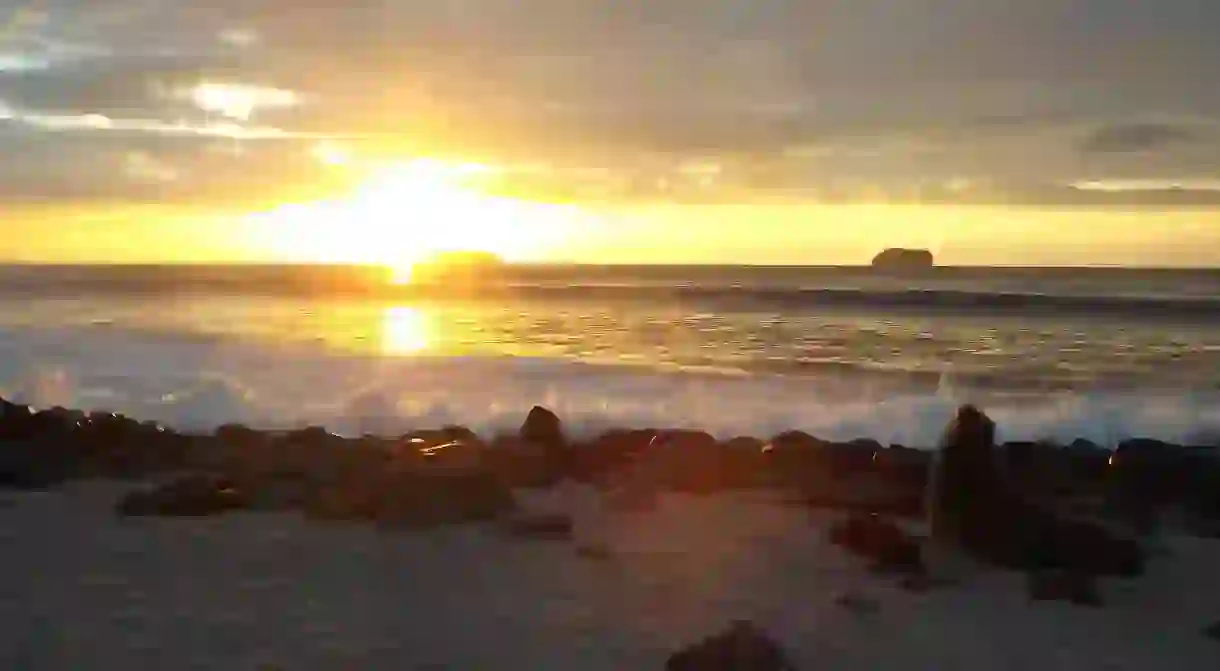15 Reasons Why the Galapagos Islands Will Inspire You to Think Differently About the World

The Galapagos Islands are like no other place on this planet, and traveling to each islands will truly make you think differently about the world.
Many species are in danger because of us

A visit to the Galapagos Islands will teach you that more than few species are in danger because of global warming and other human causes. Some of those are the Galapagos penguins, who are very vulnerable to oil pollution and climate change. Once you get to see the world’s second-smallest penguins, you will know they need to be kept safe on the islands where they belong.
Everything around you is somehow connected

Most species depending on each other, same as with humans. Observing the animals of the Galapagos Islands might give you a better understanding of how ecosystems work. For example, the Galapagos Hawk might not have survived if not for the Large Painted Locusts, nor the flamingos if not for crustaceans.
A clean and clear island is a happy island

Appreciating all the animals you see while on a Galapagos cruise will make you think that no living thing should swim around garbage. Sadly, there is still rubbish floating around the islands. Thinking about dolphins, whales, or sharks possible eating plastic bags because of people’s ignorance or poor judgment will make you realize how dangerous humans can make it for the animals in and near the ocean.
Animals here are way cooler than you ever thought they could be

You can’t leave the Galapagos Islands unimpressed with all of its weird inhabitants. You might have thought that wildlife was like meh before you got to the Galapagos Islands but learning about species, Learning the history of a species or seeing how large certain varieties can get certainly make you realize how small you are in comparison (and maybe think twice about killing that spider back home).
Local seafood is a big plus

Fishermen don’t have to travel far to eat, and you need to try the local seafood, either on land or on a cruise. Food tastes even better when it is fresh from the ocean, not frozen and transported for days on end.
Darwin’s Theory of Evolution can be observed first hand…

There’s no better way to really learn the Theory of Evolution than by seeing Giant Tortoises adapting and surviving from the highlands to drier environments with just different shells. It’s no wonder Charles Darwin saw how finches’ beaks varied from island to island, leading to the groundbreaking moment that changed science and society forever.
…because it’s not always the strongest that survive

The Flightless Cormorant, not the strongest birds in the Galapagos Islands and unble to fly, were able to adapt to their environment. Once you see them swimming and deep diving, you’ll understand “survival of the fittest” like never before.
Animals can actually be hilarious

Baby birds are cute, we know, but who knew they could look so funny, too? Most people didn’t. Observing the mating dance of the Blue-Footed Boobies and flight of the Magnificent Frigatebirds will really make you think differently about birds and how incredible they are at adapting to their environment.
Animals are never really your enemy

Animals protect what’s theirs, whether it’s their territory, food, or offspring. Other than that, none of the huge variety of animals living in the Galapagos Islands really poses a threat—it’s even safe to be near the sharks!
It’s amazing how old some animals get

Did it even cross your mind that some animal species can live up to 150 years? Imagine seeing multitudes of giant tortoises older than your great-grandparents!
Nothing lasts forever

Earth is always changing. Major natural disasters can displace species, introduce new ones, or erase them altogether. We don’t know how long we humans will survive as a species, much less the incredible ones living on the Galapagos, so we should explore what we can while we can.
It’s one of the most amazing places on earth

It might not be one of the seven world wonders, but it is one of the most protected places in the world (one of the first UNESCO World Heritage Sites, in fact) where endemic wildlife can be observed right in front of you. Not only that, but the Galapagos Islands has no indigenous human population. Traveling here will make anyone appreciate moments in nature that deserve to be stopped and listened to.
Love makes the world go round

It’s obvious but still worth pointing out. Animals don’t need money or world power to be happy; for them, life is simple: they sleep, eat, protect, and reproduce. Humans could learn from other animals and appreciate the simple things in life.
These unique species really don’t need tourism to survive

Let’s be honest—what good has tourism done for the animals of the Galapagos Islands? Sure, they might have gotten used to humans, and they might get fed a lot, but they would be better off without our stepping onto their territory.
There’s always more explore of what nature has to offer

After seeing enthusiastic sea lions, sun-soaking penguins panting like dogs, giant tortoises trudging along, and blue-footed boobies dancing in a fascinating and stunning environment, you will be absolutely primed to see more of wildlife and the incredible habitat. Whether it’s funny animals, breathtaking views, or the sound of waves, stop to appreciate what nature has to offer.













